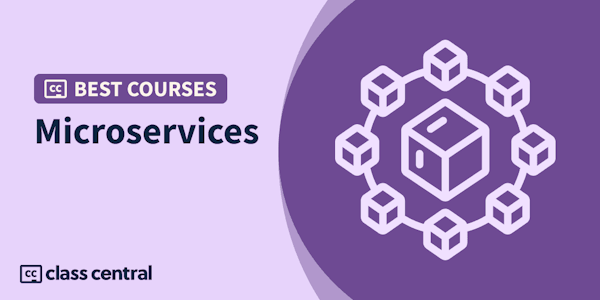What you'll learn:
- Understanding Kubernetes for application developers
- Understanding containerization and Docker
- Installing and using Kubernetes in local PC and in public cloud
- Basic components of Kubernetes
- CRUD operations and pod commands
- Services and scaling in Kubernetes
- Identity and access control in Kubernetes
- Solid understanding of EKS offering in AWS
This course covers the essential concepts of containers and Kubernetes. It includes 14 sections and 63 lectures with a total length of 13 hours and 26 minutes. You will get an overview of what CKAD and Docker are, how to build Docker images, and what microk8s and Kubernetes are. The course also covers key components of Kubernetes such as pods, replica sets, deployments, and services, as well as topics like autoscaling, configmaps, secrets, and RBAC. The course also covers more advanced topics like ingress, daemon sets, jobs, storage class, persistent volumes, and stateful sets.
The course covers AWS tools and how to create an AWS account, AMI admin user, and use the AWS CLI and Eksctl. You will also learn how to deploy a demo application and use blue-green and canary deployments. Additionally, you will learn how to authenticate users and service accounts, and use role-based access control.
By the end of this course, you will have a comprehensive understanding of the fundamentals of containers and Kubernetes, and you will be equipped with the skills and knowledge to build, deploy, and manage applications in a production environment. Whether you are a beginner or an experienced DevOps engineer, this course has everything you need to get started with containers and Kubernetes.
Why you should learn Kubernetes?
Kubernetes is a powerful tool that helps organizations manage and scale their application infrastructure. It is the most popular open-source container orchestration platform and has been adopted by many of the world's largest companies.
Learning Kubernetes is important for several reasons. Firstly, it is the backbone of modern application development and deployment, and understanding how it works is essential for developing, deploying, and scaling applications in a efficient and scalable way. Secondly, the demand for Kubernetes expertise is growing rapidly as organizations move towards cloud-native applications and infrastructure. By learning Kubernetes, you will gain in-demand skills that are highly sought after by employers.
Additionally, Kubernetes provides a lot of flexibility and control over your infrastructure. It allows you to manage and automate complex application deployments, and provides features like automatic scaling, rolling updates, and self-healing to ensure that your applications are always available and running smoothly. It also provides a unified way of managing containers, regardless of the underlying infrastructure, making it a platform-agnostic solution for managing your infrastructure.
Finally, Kubernetes has a large and active community, which means that it is well-supported and constantly evolving. By learning Kubernetes, you will have access to a wealth of resources and a supportive community to help you with any challenges you may face.
In conclusion, learning Kubernetes is important for staying ahead of the curve in modern application development and deployment, and for acquiring in-demand skills that are highly sought after by employers. With its growing popularity and robust feature set, it is a valuable investment of your time and energy.





